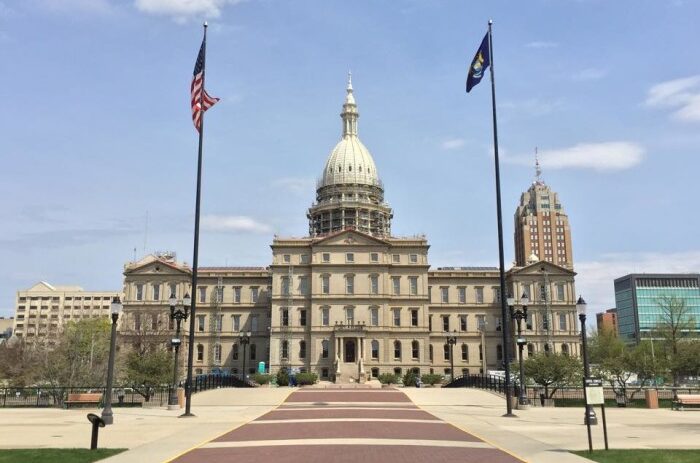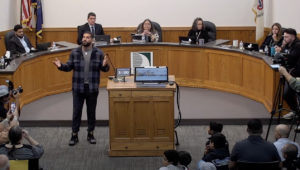Michigan court’s shielding of teachers from public record requests raises ‘transparency’ concerns, experts say
(Daily Caller) – A recent Michigan court ruling, which found that public school teachers are exempt from the Freedom of Information Act (FOIA), raises red flags for “transparency” in schools,…

(Daily Caller) – A recent Michigan court ruling, which found that public school teachers are exempt from the Freedom of Information Act (FOIA), raises red flags for “transparency” in schools, experts told the Daily Caller News Foundation.
The Oakland County Circuit Court ruled on Dec. 15 that public school teachers are not required to submit work-related documents to satisfy FOIA requests because they are not considered “public bodies,” according to the decision. Experts, however, told the DCNF that the ruling should concern parents who want to know what is happening in their kids’ classrooms.
“Virtual learning during Covid brought unprecedented transparency to public schools, revealing the radical political agenda being pushed in some classrooms,” Trent England, founder of the electoral college advocacy group Save Our States, told the DCNF. “That led to outrage and a demand for school choice, so it’s no surprise school administrators are fighting to get back into the shadows. But it’s disappointing that a judge would do their dirty work.”
In March 2022, the Mackinac Center Legal Foundation filed a lawsuit against the Rochester Community School District on behalf of a local parent who attempted to file a FOIA request to obtain information about its History of Ethnic and Gender Studies class. While the district provided a unit plan for the course, it refused to provide additional documents, such as tests and quizzes, related to the class.
The parent became interested in the course after seeing a post about it on social media, according to MLive.
Foundation for Individual Rights and Expression General Counsel Ronnie London echoed the court ruling and told the DCNF that the definition of “public body” does not list “employees” under its “subsection for county/city/township” offices.
“As I understand it, the court concludes that, regardless of whether teachers are employees of their school administrations or are employees of the bargaining unit (or both, I suppose), as ’employees’ at the local level, they do not fall within the statute,” he said.
Steve Delie, director of transparency and open government at the Mackinac Center, wrote in a press release that the group is “disappointed” with the decision and claimed that it “drastically weakens transparency in Michigan’s schools and could have severe implications for transparency efforts across the state.”
“Parents deserve to know what their children are being taught, and this decision will only make that more difficult,” he wrote.
Teachers Not Subject to Freedom of Information Act, Court Rules | Opinion shielding public employees from oversight comes in response to Mackinac Center lawsuithttps://t.co/mbs9O9bqQ7
— Mackinac Center (@MackinacCenter) December 19, 2022
Holly Wetzel, director of public relations at The Mackinac Center told the DCNF that the decision “should be extremely concerning to anyone who is paying attention to transparency efforts across the state.”
“The standard could go further than impacting transparency in the classroom and could potentially exclude local government officials, university faculty or other state employees from being subject to the Freedom of Information Act,” she said. “This would severely restrict taxpayer’s ability to keep government transparent and hold it accountable.”
England also claimed that ruling is “an insult to parents” and alleged that schools “have something to hide” when public school employees are not “subject to open government laws.” The ruling also showed how public schools are less transparent than private schools, according to England.
“When parents can choose their kids’ school, and education dollars follow students, schools pay attention to parents,” he said. “But with the government school monopoly, parents are left relying on politicians and judges. This case shows the weakness of those protections.”
Parents across the country are concerned about lack of transparency in public school education.
In August, Arizona parents responded to a school district’s “Classroom Expectations” list by creating a list of expectations for the school board to follow. State lawmakers also introduced legislation to increase “curriculum transparency” which would require teachers to make learning materials publicly available.
Judge Jacob James Cunningham and the Rochester Community School District did not immediately respond to the DCNF’s request for comment.


